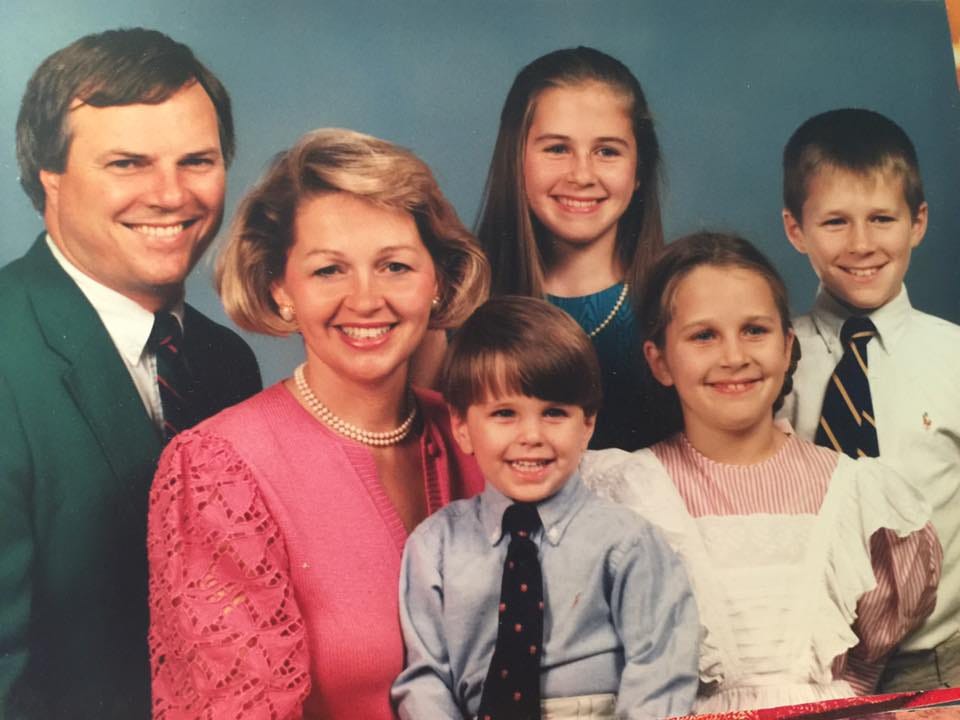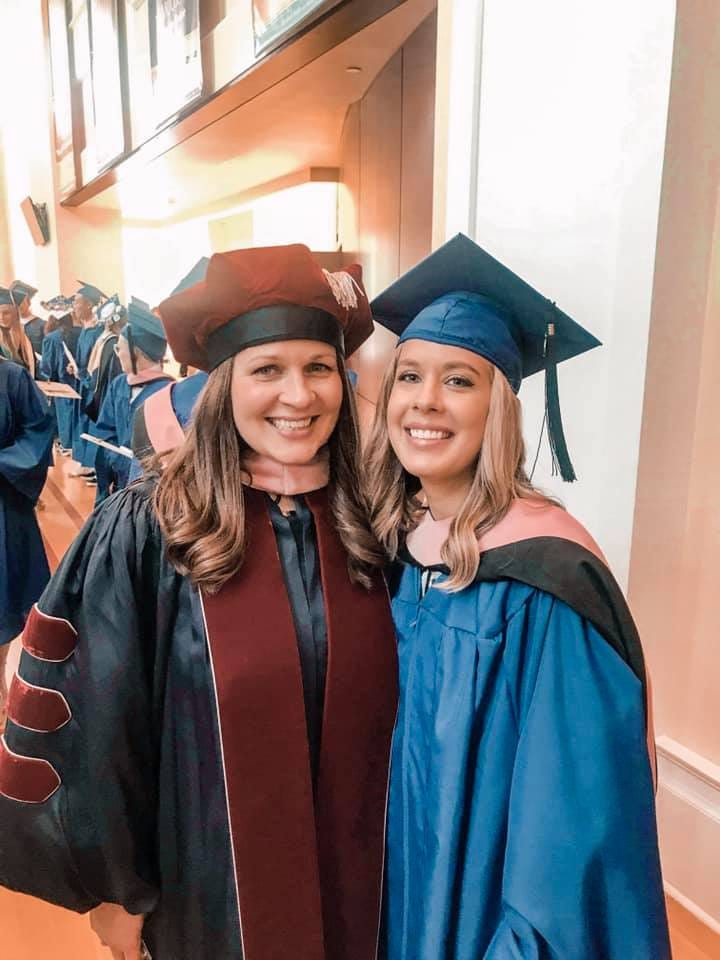Welcome back to the series “Art’s Open Door,” where we’ll explore the profound ways creativity and spirituality intersect, inviting us into a deeper sense of well-being, connection, and joy.
'Tis the gift to be simple, 'tis the gift to be free,
'Tis the gift to come down where I ought to be;
And when we find ourselves in the place just right,
'Twill be in the valley of love and delight.
When true simplicity is gained,
To bow and to bend we shan't be ashamed;
to turn, turn, will be my delight.
Till by turning, turning we come round right.
Text to “Simple Gifts” a Shaker dance, by Joseph Brackett (1848)
She heaved the volumes onto the sturdy tables of the stuffy, fifth-floor classroom with a thud. This was bibliography class, one of the first classes in my doctoral program at Juilliard: where I learned there was a “right” way to use the library, came to know the maniacal torture device that is Chicago Manual Style, and discovered that I am not the kind of person who will spend their days writing scholarly texts about music.
Our bibliography teacher, Professor J1, the head librarian and doctoral program head, encouraged me. She tailored resources and examples in class specifically for me as an oboist. As if to say, Come on, you’re one of seven students we accepted; just because you’re not a pianist or a composer, it doesn’t mean you can’t do this. She was a genuine and passionate advocate for us. But also: Please use original source material and be fastidious and thoroughly perfect.
It wasn’t that I wasn’t plenty fastidious all on my own. I sacrificed myself at the altar of perfectionism back then—this full-scholarship life should have made me feel better, but instead, the work felt like one big guilt offering to a God I feared hated me. I tried to memorize when to use a comma vs. parentheses in citations. I exerted all my energy to complete every assignment on time and with a smile. I learned every rule and its 900 exceptions. And with each mistake that still slipped in, and even when I succeeded in producing a perfect citation list, I felt more and more crestfallen. I had this sense I was living across the street from my dream, watching it go by each day from where I sat up high above Broadway.
How do we end up in these shadow versions of our lives? In his book, “Turning Pro,” Steven Pressfield coined the term “shadow careers” for the pursuit of the thing adjacent to the dream itself, the job that is similar to your true calling but not quite it. He posits that when we get a job as a graphic designer instead of becoming a painter—when we choose something that is just to the right of our actual dream—it’s due to our fear of failure and/or success.
I was hungry for some kind of confirmation that I belonged, so I worked hard to get noticed by my teachers, astonish everyone and be “the best.” I was ravenous but also full—of “food” I did not find satisfying in the least. And in bibliography class, no shade to Professor J, I was hopelessly, irretrievably, and comprehensively bored. But instead of taking this as a sign I might not be on the right path, I felt like a scared animal, trapped and ashamed.
I grew up as “Meri” in rural South Carolina—a place that loves its nicknames—but I dreamt of living in New York and being an artist. My grandparents had taken my sister and me there on vacation. The details of my exact ambition were unclear back then; I just knew how I wanted to feel.
I’d spend hours singing show tunes with our brand-new CD player in front of the mirror in the living room when no one was home. I’d lie on the floor of my bedroom listening to Aaron Copland’s “Appalachian Spring” and attempt to inhabit the open chords and spacious harmonies. I longed to see the world, to know what made this music so beautiful. When Copland’s finale came on, with its lilting folk melody, I would rise from the floor and move my body with the brass, feeling goosebumps across my arms. This was how I wanted to feel: free. This was what I wanted to fill my life with, whatever it took.
And so, when I learned that I wasn’t bad at playing the oboe—an instrument equal parts strange and unapologetically heartfelt, not unlike my own temperament at that age—I figured this was my ticket. I set my sights on Juilliard because it was in New York and because I had heard people say that it was “the best.” When I left for boarding school at sixteen, my mother began calling me “Birdy,” because I was always flying away. Each step I took towards the dream held great expectation: to feel qualified, ready, to call myself a musician, an oboist, a conservatory graduate.
And so, imagine my confusion when, a decade or so later, near the end of my first semester of my doctoral program, I heaved myself into the by-then familiar four walls of bibliography class, venti Starbucks in hand, felt the heavy door seal behind me, and it was mostly dread I felt, not joy. We were all hoping to add “scholar” to the list of qualifiers in our bios, but each day I spent in pursuit of that title left me feeling more and more lost. As I sat down beneath the shadow of all those great musicians who had sat in my seat before me, I heard a question, one that up until this point in the school year I had been ignoring, ringing in my ears so loudly I could barely breathe: What are you doing here?
As she did for every class, Professor J had rolled a large cart of hardback volumes, taller than she was, from her office in the library to our classroom down the hall. She held up each one and explained its purpose in our future dissertation research. Her arms quivered from the weight of a burgundy volume with gold lettering that she announced was a bibliography of bibliographies—a metabibliography. As we feigned interest over a book listing other books, she came to her last piece of research material to show us that day.
“These are tune indexes, annotated lists of melodies,” she said. “Flip through them and find something familiar.” She shared that musicologists have been naming and cataloging tunes for centuries. In hymnody—the study of hymn singing— these indexes are lists of melodies, officially named, followed by information about the song’s various text settings, other titles they may have been known by, and a brief historical blurb. Other musical traditions and instrumental repertoires have indexes, too. (Let’s be real: there is probably a meta index, an index of tune indexes, but you’d have to go to the library and find that out for yourself!)
When it was my turn to open the dusty, linen-bound book, I felt goosebumps on my arm. I wasn’t sure why.
As I began turning the pages, I felt like I had stumbled upon some top-secret playbook. Melodies I’d sung all my life had new strange names: Amazing Grace = New Britain, Praise God from Whom All Blessings Flow = Old Hundredth. What were these names, and what did they mean? This book spoke another language, it cast a hopeful light.
“St. Anne,” I read, “with the most popular text, ‘Our God, our help in ages past.’ Named for St. Anne’s cathedral in London where the tune’s composer William Croft was organist.”
“Eventide,” I read, “the tune for the hymn ‘Abide with Me,’ the name evocative of the peace of twilight.” And while some tunes were named after the first line of their most popular setting (“Adeste Fideles” is the tune name for “O Come All Ye Faithful,” for example), most of the official names I read in the index, even of familiar songs, were new to me.2

I felt Professor J’s eyes on me. I was worried I may have been taking too long, that I should pass the book to my colleague on the right, and turned one last page. That’s when I saw it. An entry for a tune that called to me in the shadows:
“Simple Gifts: shaker melody from 1848, used most notably in Aaron Copland’s ‘Appalachian Spring’ and innumerable iterations throughout the 20th century, including a hymn entitled ‘Lord of the Dance’ included in many protestant hymnals. Often sung slower and more stately, this tune was originally conceived as a dance in Shaker worship, labeled ‘quick dance’ in early manuscripts.”
Here was my beloved “Appalachian Spring,” only now it was revealed to me by its true name, accompanied by all the other forms it had assumed over the years. The first arrangement I’d ever heard was Copland’s—the classical, symphonic setting with noble brass and shimmering strings. But I’d also sung the same melody from the dark red hymnal at Main Street United Methodist Church, this time entitled, “Lord of the Dance.” I remembered how, after worship, my older brother would scream-sing the tune with made-up words from the top of the stairs in his shaky pubescent voice until the whole family laughed. Now, I sat in a classroom in the middle of New York City, and here it was again, this time by its real name, “Simple Gifts.” This dance tune composed by a small religious sect in 19th-century rural Maine had become my own personal rhapsody, weaving a strangely synchronous tapestry, given to an oboist across time and space, a musical gift, as simple as they come. And yet, so much more to me than a quick entry in an index could name.
As I held this book and I looked down at the different names for this melody that had spoken to me all those years ago, I sensed, again but like for the first time, a kind of belovedness, a benevolence, not just for the gift of this music and the musicologists who collected and cherished these melodies, but for my creator, who, I realized at that moment, had named me before anyone else, was collecting me in all my iterations, was loving me, too.
As I felt the pages of that seemingly ancient book against my fingers, as I sat with all my questions about my future as a musician, writer, and scholar, as I saw “Simple Gifts” listed there—a tune I’d loved in ever form, no less beautiful or joyful in an orchestra hall or a sunlit church or coming from a silly (slightly irreverent) teenager's mouth—I imagined God singing us into existence.
Scripture reveals this melodic heart of the divine in Zephaniah 3:17. It says, “The Lord your God is with you, the Mighty Warrior who saves. He will take great delight in you; in his love, he will no longer rebuke you but will rejoice over you with singing.”3
As a child, my mother would enter my room to wake me with a melodic “rise and shine,” and even just thinking of it now, singing her melody to myself, I feel her delighting in me. I don’t always live like I’m worth singing over, that my creator not only fights my battles but delights in me with rhapsodic joy, and gives me my own life-song to sing.
Life has its way with us; we make our way in this heart-wrenching world, singing the songs of our lives as best we know how, only to wake up and realize we’ve lost the theme. And yet, what I learned that day in bibliography class was this: every tune has a name, and my composer knows mine.
Have you looked for others in your life to name you? To give you a sense of identity and value? How’s that been working out for you?
We long to see our lives as a trajectory, a linear progression like a neat, three-line entry in a hardback volume when really what we are is a melody, written and rewritten, up-tempo and down, transposed and reharmonized through time, called many names, some that fit better than others. Maybe all your life, you’ve been trying to sing your life’s song with an orchestra behind you when you’re really an unpretentious barn dance. Maybe you thought you could only be defined by what you do, like a tune named for the first line of its text, but in reality, you are more than your performance, more than the roles you play, your true name hiding somewhere beneath the shiny surface. Maybe you somehow ended up in a degree program for scholars when what you really wanted was to play the oboe, to write essays and poems about spirituality and art.
Merideth, Meri, Birdy, Oboist, Writer, Mama—I’ve gone by many names, and I’d bet you have too. We move through life’s roles and seasons, stretching to fit a new container, adding brass here and developing an interesting counterpoint there, but no matter the setting, no matter the u-turns, no matter the instrumentation, we are named beloved. Like every great melody, there will be times you’ll hardly recognize yourself as you go through a particularly rough episode of development, when you’re thrown from one instrument to another. It can be disorienting, bewildering, discouraging. But what if, no matter the role you play or career detour you take, what if there is something unshakably true about you, available through the simple gift of God's love, which vibrates in every interval? A song whose name only God knows? What if all the complexity and confusion of your busy life can’t change the simple fact that you are worthy of love, just as you are? And what if that fact could set you free?
The lyrics are true. It is the gift to be simple; it is the gift to be free. I remember reading in my research that the lyrics are often mistakenly written with “a” instead of “the.” It is not a gift to be simple but the gift. The gift is simplicity. The gift is freedom. This is what loving God means. It is not something we do; it is something we are given. Our identities—beloved and inherently worthy—are not earned but gifted to us. We can stand up and walk out of the shadow lives and step into our truest and most aligned orchestrations, trusting that no matter how many times we turn, no matter how many wrong harmonizations we may find ourselves in, there is a composer who sings over us, delights in us, calls us by name.
I think I passed bibliography with a B-. After graduation, when I was named Associate Professor (another setting that was only right for me for a time), I spent years feeling guilty that I wasn’t writing and publishing scholarly articles and contributing to that particular pool of meaning. But now I know that scholarly publication wasn’t my song to sing. And what a relief! I found my way out of the shadows, not by shaming myself into a place I wasn’t meant to be, but by trusting the original source, the one with the meta-narrative, a larger, higher vision than we can see. God knows how the grand symphony of my life sounds; I do not write it as I go. I just discover it and get to sing along.
What looked at first like fragmentation and cacophonous chaos, what I thought was a tragic breaking apart, was really my life’s song being broken open.
And so, I want to remind you of what I learned from bibliography class and my temporary obsession with tune indexes: that something as unique and precious as a melody, with its lilt or intensity, its symmetry or surprising elisions, no matter how hard we try, it cannot be contained in a category or inventory. As much as we’d like to analyze and understand what makes it great, to transpose, reharmonize, and orchestrate it differently— there comes a point in all of our intellectualizing when there is only one thing left to do: sing.
So live your life, in whatever form you find yourself in. And when you forget your melody, when you long to find yourself in the place just right (and fear you’re not), when you’re tempted to rush on ahead instead of listening and waiting for the mysterious beauty of a new verse to unfold, may you go to your Great Composer, the one who makes the morning stars sing together (Job 38:7), the one who, in his human form, sang a hymn of praise even in the face of death (Matthew 26:30). Step out of the shadow and into the light of the One who has overcome the darkness. Ask him to help you receive the simplest gift: the freedom that comes with hearing your composer call your name, singing over you with uncontainable, exuberant delight.

Name changed.
Tip: If you ever wonder what the tune name of a hymn is, look at the bottom right-hand corner of the page in the hymnbook. The tune name is usually in a small font in all caps.








Beautiful writing; this is the exact reason I didn’t apply for the program you were in. Something felt… off, and I was told to lie about my goals in order to get it. It sure takes us all time to find what is not right for us!